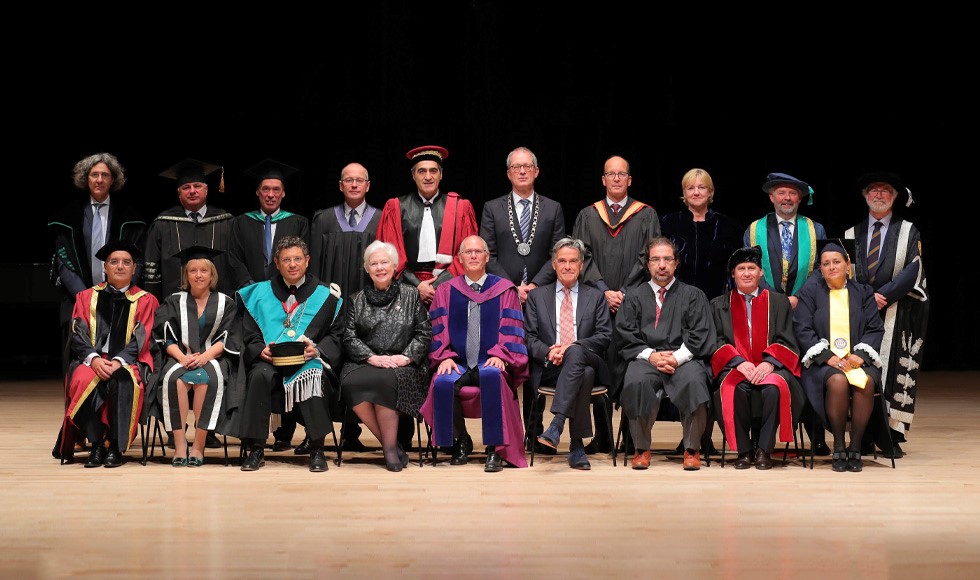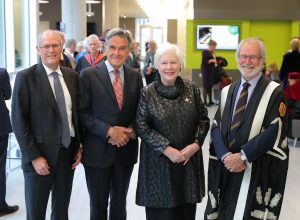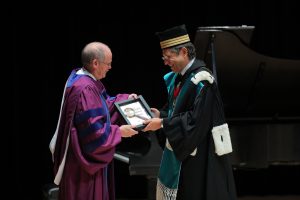Global university leaders gather at McMaster

Photo by Ron Scheffler.
University leaders from around the world gathered at McMaster this week for two days of keynote speeches, workshops and discussions as the Magna Charta Observatory held its annual conference in North America for the first time.
Drawing participants from every continent except Antarctica, the conference explored questions of academic freedom and the social responsibilities of universities. The topics were inspired by the framework within the Magna Charta Universitatum, a document first signed in Bologna, Italy that lays out fundamental values and principles that guide the missions of universities internationally.
More than 900 institutions globally are now signatories to the Magna Charta, which marked its 31st anniversary this year.
In 1988, rectors of European universities were galvanized by a sense of anticipation as decades of isolation and opposition between east and west drew to a close, said Magna Charta Observatory president Sijbolt Noorda. The original charter reflected that anticipation of international collaboration and partnership, as well as the ideals and core values of a true, autonomous university.
“Since 1988 we’ve learned, often the hard way, that proclamation is one thing and living according to these principles is quite another,” Noorda said. “These principles are high-maintenance. It’s not sufficient to recite and celebrate them. They must be lived, practised, developed and protected as context and circumstances change.”
As the world has changed, so has the spirit of optimism that imbued the original signing in 1988.
“Our core values of autonomy and academic freedom remain vital, but other values are just as necessary,” David Lock, secretary general of the Magna Charta Observatory, said. “Innovation, excellence, social responsibility and community service, diversity, health and well-being all operate alongside our core values.”
The first day of the conference featured keynotes from Sigal Ben-Porath, an expert on freedom of speech on campus from the University of Pennsylvania, and Jim Dunn, McMaster’s acting associate vice-president of research, who spoke about sustainable cities.
From there, participants took part in workshops that covered topics including sustainability, academic freedom, student government, values-based leadership and equity and accessibility.

The second day of the conference welcomed 15 new signatories to the Magna Charta with a ceremony that featured a keynote speech by Ontario’s lieutenant-governor, Elizabeth Dowdeswell.
“We count on universities to be vigilant in safeguarding the very foundation of our societies,” she said. “There is an unmistakable hunger for a world that works for everyone…we need to harness the best minds – your minds – and your abilities to achieve that.”

Francesco Ubertini, rector of the University of Bologna, where the conference will be held next year, provided closing remarks, explaining that a revised Magna Charta Universitatum will be unveiled at next year’s conference.
“Our values are not a destination, or a single point in time,” he explained. “They are a journey to be undertaken.”


